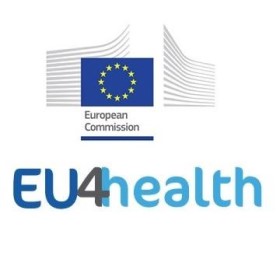
Call for Proposals to increase health literacy for cancer prevention and care
| Identifikátor: | EU4H-2024-PJ-02-2 |
|---|---|
| Rozpočet: | 5 000 000 € |
| Typ: | Jednokolová |
| Datum otevření: | 18. 6. 2024 |
| Datum uzavření: | 10. 10. 2024 |
Cílem výzvy je zlepšit informovanost o rakovině a rizicích vedoucím k jejímu vzniku.
Typ žadatele: Konsorcia
Předpokládaný rozpočet projektu: 1 mil. €
Objective:
The main objective of this action is to support health literacy for cancer prevention and care, to improve health literacy and to focus on reducing inequalities in cancer prevention and care.
This action supports the implementation of the Europe’s Beating Cancer Plan objective to launch a project on ‘Health Literacy for Cancer Prevention and Care’ and implements the EU4Health Programme’s general objective of improving and fostering health in the Union (Article 3, point (a), of Regulation (EU) 2021/522) through the specific objectives defined in Article 4, point (a), of Regulation (EU) 2021/522.
The action should aim to:
- improve health literacy of citizens, of patients of all ages, as well as of healthcare professionals;
- improve health literacy of citizens on cancer prevention and provide them access to adequate and reliable health information in order to empower them to make informed decisions supporting healthy lifestyles and improving health for all citizens of all ages;
- improve health literacy of patients by providing adequate, reliable, and timely information on their diagnosis and treatment to achieve their disease understanding and active involvement in the treatment; improve health literacy in palliative care;
- improve health literacy education of health professionals:
- raising awareness of the impact low health literacy can have on people at risk of cancer and cancer patients;
- providing healthcare professionals with health-literacy-friendly communication techniques to support their interactions with cancer patients.
Provide access to reliable, accurate and easy-to understand information to:
- improve access to reliable, accurate cancer information in different languages, with attention to varying digital and literacy skills and accessibility;
- improve access to reliable, accurate information on the internet, to combat misinformation available online / in social media to educate and protect citizens and patients from misinformation on the Internet and social media;
- support cancer literacy in relation to emotional impact and psychosocial distress of cancer patients;
- build a 'Virtual library' on communication in cancer prevention and care;
- reduce medical jargon and improve education using plain language, easy-to-understand written materials, including visuals to provide more culturally and linguistically appropriate health education and enhanced web-based information.
Promote health literacy, exchange of information and best practices to:
- introduce a cancer health literacy day to raise awareness and promote its importance;
- support the generation and dissemination of evidence and good practices, including at population level;
- gather lessons learned to enhance health literacy in general, for example, through the establishment of cancer literacy projects;
- get an overview of health literacy programmes developed within healthcare systems and in the community;
- reflect on the role of health literacy in cancer prevention and care, potential gaps, and recommendations for action;
- promote collaboration and exchange of information, innovations and experience on cancer health literacy between Member States and other relevant stakeholders.
Scope:
This action contributes to the implementation of the Europe’s Beating Cancer Plan.
Expected Impact:
The expected result is the launch of projects to increase health literacy for cancer prevention and care.
This action will increase health literacy of the general population, patients, and health care specialists in the area of cancer prevention and care, will enable citizens to take informed decisions as regards prevention and screening, will help patients to take active involvement in treatment and will help health-care specialists to transmit the information in an easy-to understand way.